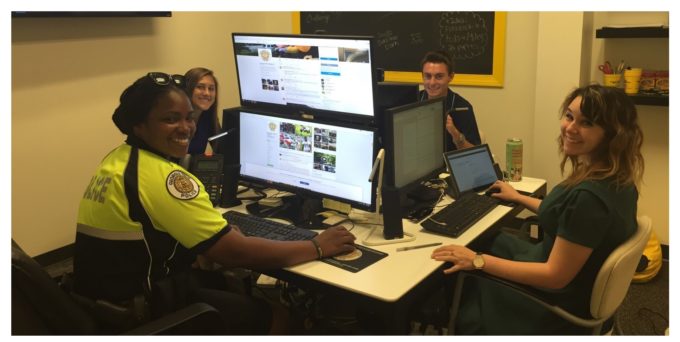Social Media Helping – Good Investigation Techniques Still Key
 Thinking about social media’s relevance to law enforcement, there are two different applications – using social media to facilitate communication between cops, versus mining clues about suspects from social media sites. I’ve written about the latter here, but there are also some important things we need to consider as social media tools are more frequently used to connect cops.
Thinking about social media’s relevance to law enforcement, there are two different applications – using social media to facilitate communication between cops, versus mining clues about suspects from social media sites. I’ve written about the latter here, but there are also some important things we need to consider as social media tools are more frequently used to connect cops.
There are some valuable social media tools available to law enforcement and intelligence analysts as they work on threat analysis and case investigation. For example, I subscribe to a LinkedIn group called Intelligence Studies Program, which is a forum where members can ask questions and get answers from other law enforcement professionals. You can have these discussions sent to your email, read them, and post answers if you have knowledge useful to the discussion.
Social media tools like this allow faster progress on analyzing trends, patterns, and regional issues without needing to make dozens of phone calls hoping that one of your colleagues has relevant answers to your query. For example, an analyst or investigator might post a question about a spray painted logo and ask if it is gang related. Members of the group with valid information can chime-in and you might have your answer in minutes. This is powerful, and it is connecting cops in useful ways.
However, there is a distinction between “talking” via social media, and using tried and true tools and processes for investigation and analysis. Social media tools are a breakthrough similar to introducing police radios to patrol cars. These tools make communication much easier. Social media is about communicating and gaining knowledge. But we still need to make sure that data is entered into police reports, and intelligence analysis reports or products. Analysts will need those resources for future queries as they work to connect the dots on future threats and cases. The information we collect needs to be searchable, often must conform to data handling regulations for intelligence data, and needs to be stored in an appropriate repository for police work.
Social media tools earn high marks for “here and now” relevant exchange of information. But data doesn’t sit on Twitter or other social media indefinitely, and often these conversations are lost in the rearview mirror, forgotten and inaccessible for future use. So, while social media changes the way we ask questions, it doesn’t change why. Why we ask questions has everything to do with good investigative technique.
In summary, social media doesn’t replace investigative and reporting protocols. We benefit from social media, but we need to continue using the technology tools and processes that are essential for analysis, investigation and creation of intelligence reports.
Captain Stephen G. Serrao is a former New Jersey State Police Counterterrorism Bureau Chief, and now helps shape the direction of intelligence management software as Director of Product Management, Americas Region for Memex, Inc., a SAS Company and worldwide provider of intelligence management, data integration, search and analysis solutions. Serrao also serves as Chairman of the IJIS Institute’s Security and Privacy Committee. Serrao can be reached at steve.serrao@memex.com.



